




 |
   |
 |
|
Cocteau Twins Coda Phil Cody Danny Cohen |
Leonard Cohen Marc Cohn Coil Cold War Kids |
Cold Water Flat Coldplay Andrew Cole Jude Cole |
Ned Collette & Wirewalker Gerald Collier Edwyn Collins |
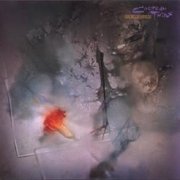 |
Sunburst & Snowblind EP (1983, 14.34) ***½/T½Sugar Hiccup (extended)From the Flagstones Hitherto Because of Whirl-Jack |
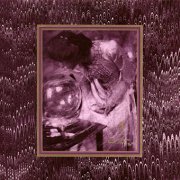 |
The Spangle Maker EP (1984, 13.24) ***½/½The Spangle MakerPearly-Dewdrops' Drops Pepper-Tree |
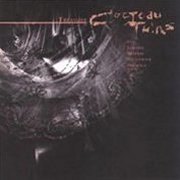 |
Treasure (1984, 41.20) ****/T |
|
| Ivo Lorelei Beatrix Persephone Pandora Amelia Aloysius Cicely |
Otterley Donimo |
|
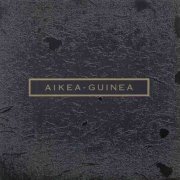 |
Aikea-Guinea EP (1985, 14.31) ***½/½Aikea-GuineaKookaburra Quisquose Rococo |
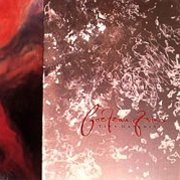 |
Tiny Dynamine EP (1985, 16.32) ****/TPink Orange RedRibbed and Veined Plain Tiger Sultitan Itan |
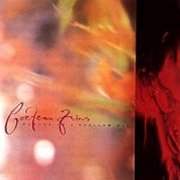 |
Echoes in a Shallow Bay EP (1985, 16.12) ****/TGreat Spangled FritillaryMelonella Pale Clouded White Eggs and Their Shells |
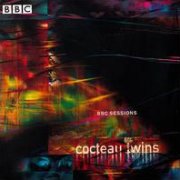 |
BBC Sessions (1999, recorded 1982-96, 111.22) ***½/½ |
||
| Wax and Wane Garlands Alas Dies Laughing Feathers-Oar-Blades Hearsay Please Dear Heart Blind Dumb Deaf Hazel The Tinderbox (of a Heart) Strange Fruit |
Hitherto From the Flagstones Sugar Hiccup In Our Angelhood My Hue and Cry Musette and Drums Hitherto From the Flagstones Musette and Drums Pepper-Tree |
Beatrix Ivo Otterley Serpentskirt Golden-Vein Half-Gifts Seekers Who Are Lovers Calfskin Smack Fifty-Fifty Clown Violaine |
|
Current availability:
Mellotrons used:
There's no getting away from it: say what you like, The Cocteau Twins are goth incarnate, Liz Fraser's ethereal vocals the only element of their sound that doesn't conform to the template, unlike the drum machine, the super-effected guitars and Will Heggie's flanged lead bass-work on their early releases. Their first release after Heggie's departure, 1983's Sunburst & Snowblind, presumably features their new third member, Simon Raymonde, who plays the Mellotron choirs on the EP, with swells on Sugar Hiccup and block chords on From The Flagstones, although the choirs on the title track of their follow-up, The Spangle Maker, are so faint, they only become audible in the song's dying seconds.
1984's Treasure, The band's third album, refined their strange, proto-ambient music, complete with Fraser's wordless lyrics that always sound like she's actually singing something, even when you know she isn't. In hindsight, maybe they should've got a real drummer in, as the mid-'80s drum machine sounds horrendously passé now, as does the DX7 'bells' patch on the first couple of tracks, but those aside, the album has an unearthly beauty, defining the '4AD Sound'. Much imitated, never bettered, this is music in which to lose yourself. Most of the keyboard work consists of then-modern synths and a little piano, but the M400 the band owned comes to prominence on album closer Donimo (NOT 'Domino'!), with choirs (not mixed - maybe male voice) and some rather wobbly cellos and regular strings for good measure. It's possible there's some more Mellotron on the album, but if so, it's buried so far in the mix as to be inaudible.
1985 brought no fewer than three relevant EPs, (their entire singles oeuvre has now been collated onto 2005's four-disc Lullabies to Violaine), with the style most definitely remaining the same. Aikea-Guinea's title track has some distant choirs (bit of a repeating feature, this), while Tiny Dynamine (NOT 'Dynamite'!) has some ethereal (of course) Mellotron choirs on Pink Orange Red, but I suspect the 'string' sound on Sultitan Itan is overdubbed sustained guitar, possibly E-Bow. Echoes in a Shallow Bay is more rhythmic than its immediate predecessors, sounding strangely upbeat for such a laid-back band, with more Mellotron choirs (male voice?), more overt this time, on Pale Clouded White.
1999's BBC Sessions does exactly what it says on the tin, collating eight radio appearances onto a two-disc set, mostly dating from 1982-84, with a pair from '96 finishing things off. If you ever wanted to hear the Cocteaus without the production, this is where to come; rough, yet lively versions of the familiar and unfamiliar, not least a short version of Billie Holliday's searing Strange Fruit and the previously-unreleased My Hue And Cry. Mellotronically speaking, we get near-identical background choirs on both versions of From The Flagstones (from October and December '83) that only make themselves fully apparent at the end of the track, although the jury's out on what might just be exceedingly background choirs on My Hue And Cry.
You pretty much know what you're getting with The Cocteaus, don't you? Ethereal, wordless vocals, swirly, heavily-effected guitars, a soupy production, none of which should actually be taken as criticism. All of the above are wonderfully atmospheric records, worthy of anyone's time, although don't expect an awful lot on the Mellotron front. Incidentally, Simon Raymonde has written to me to tell me that he played all the Mellotron parts on an M400 bought for an obscenely low sum the year before I paid about seven times as much for mine. And I still got a bargain.
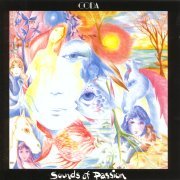 |
Sounds of Passion (1986, 41.27/121.57) **/TT½ (TTT½) |
||
| Sounds of Passion Prologue 1st Movement 2nd Movement 3rd Movement 4th Movement - 'Finale' Crazy Fool and Dreamer Defended |
[2CD ed. adds: Sounds of Passion 4th (single) Sounds of Passion 3rd (single) Crazy Fool and Dreamer (single remix) Central Station Reverberating Sounds Sounds of Passion (demo) |
Nevermore (The Proud Tower I) (demo) Dance in the Mirror (Defended) (demo) True Melody (The Proud Tower II) (demo) Crazy Fool and Dreamer (demo) What a Symphony (Part 1) (demo) What a Symphony (Part 2) (demo) Reverberating Sounds (demo)] |
|
Current availability:
Mellotron used:
Coda were a Dutch outfit from the '80s, who released their first album (of two) on the SI label. Now, if that doesn't start ringing warning bells, you're in trouble. To be fair, they weren't quite as bad as much of that label's output, while this is more 'poor man's Enid' than 'full-blown neo-'; I'm not sure if it's much of a trade-off, frankly. Obvious reference points are Genesis/Steve Hackett, Marillion and the occasional Emersonism from project mainman Erik de Vroomen on the keys. Thankfully, the twenty-nine-minute title track is mostly instrumental; the vocals on the last two pieces are appalling - badly-accented English, half-spoken, half-sung. Far too many digital synths on the album, too, assuming the band were aiming for a warm, '70s-type sound. Thankfully, some real Hammond, the odd bit of analogue mono and a little Mellotron saves the album from Digital Hell.
The music? Very melodic but frequently rather insipid, it has its moments, not all containing Mellotron. The spoken intro to the album is completely ludicrous, spoiling the first few minutes of the piece proper, as you're still smirking from its idiocy. 'Oh, feelings, feelings... feelings... I can hardly describe it...' I can, but shan't. Parts of the 1st - 4th movements of the title track are worthwhile, as is the surprisingly powerful Crazy Fool And Dreamer, but the album's scuppered by some exceedingly questionable compositional and instrumental decisions, sad to say. Mellotron? Erik de Vroomen (this began life as his solo project) uses his Novatron with subtlety - possible a little too much, sadly - with distant choirs on the 1st Movement of the title track, lush strings on the 3rd, strings and background choirs on the 4th and choirs and occasional strings on Crazy Fool And Dreamer and Defended.
Pseudonym's 2007 two-disc reissue adds some single edits (yes, there was a 1986 7", on the same label as the album's original vinyl issue, also a 1992 CD single on SI) and a raft of demos, including early versions of tracks from De Vroomen's second and last Coda album, What a Symphony. The only Mellotronic non-single edits are on four demos, Dance In The Mirror (Defended), featuring strings and choir, flutes, strings and choirs on Crazy Fool And Dreamer, strings and choirs on What A Symphony (Part 1) and flutes, cellos (?) and upfront strings on Part 2, letting us hear some second album material with Mellotron. Usefully, those second album demos have done double duty by comprehensively curing me of ever wishing to hear that album, not that I had any intention of doing so, anyway.
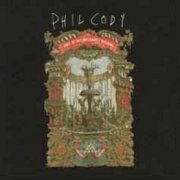 |
The Sons of Intemperance Offering (1996, 64.44) ***½/0 |
|
| House of Lust Running Halfway Blown Stages Solana Beach Song Hats Off (to the Big Queen City) All the Way My Lover Leads Soldiers The Loneliest Girl in the World |
Straight to Hell A Soft Reply Scream at the Blackbirds Tighten Up Simpatico Blvd. Unmarried Ladies |
|
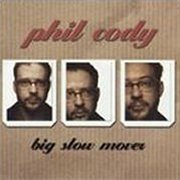 |
Big Slow Mover (2000, 46.41) ***½/TT |
|
| We Could've Had it All Big Slow Mover Opposition Radio Standing Invitation Run Out of Town If I Needed You City of Destruction 40 Winks of Sleep |
Joyride Wicked Cold Waltz |
|
Current availability:
Mellotron/Chamberlin used:
Phil Cody is the kind of artist that America seems to roll out on a production line: slightly Dylanesque, Americana-toting, heartfelt singer-songwriters whose combination of influences is unique to that country. I believe The Sons of Intemperance Offering (a title bewilderingly described as 'almost unpronounceable' by one website) is his debut, although hard and fast information about the man isn't easy to find. It's an appealing combination of, well, Dylan and alt.country, often in the same song, best tracks including Scream At The Blackbirds and the lengthy, jammed-out Simpatico Blvd. One of the newer breed of tape-replay enthusiast sessioneers, Rami Jaffee, plays Mellotron, although I'll be stuffed if I can work out where. I suppose there could be some flutes hidden away here and there, but you'll need sharper ears than mine (not difficult, frankly) to hear them.
Four years on, 2000's Big Slow Mover carries on the good work, at its best on the sparse Opposition Radio, Run Out Of Town and City Of Destruction's country and the raucous Joyride, although there's barely a duffer to be heard here. Jaffee plays obviously real Chamberlin this time round, with background strings on opener We Could've Had It All and Standing Invitation, solo male and female voices on Opposition Radio and cellos and upfront strings on 40 Winks Of Sleep.
 |
Self-Indulgent Music (1998, 54.01) **½/T½ |
|
| Seattle (Danny Cohen) Oroville (Danny Cohen) Concrete & Urine (Danny Cohen) Frat Fucks (Danny Cohen) Retirement Community (Danny Cohen) Human Mayonnaise (Mike Boner) Vacuum Cleaner (Mike Boner) My Tongue Knows More Than I Do (Mike Boner) |
Figure Skating Dog (Mike Boner) Don't Be Scared (Mike Boner) Sweatin' in Your Ass (Horse Cock Kids) Life After the Blowjob (Horse Cock Kids) Fuckin' Mississippi (Horse Cock Kids) |
|
 |
Museum of Dannys (1999, 70.44) ***/T½ |
||
| Museum of Dannys Ranting in the Street Thin White Line New Mexico Basement Astral Rag Quiet Man Francis Blend |
Don't Remember In the Barrio Pentagram Eternal Night Los Angeles Justice Done The Desert Floozy |
I'm Not Me Rheeba's Canteena Suicide Judgement Day |
|
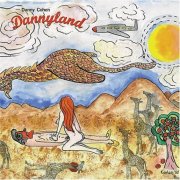 |
Dannyland (2004, 48.25) ***/T |
|
| The Devil and Danny Cohen Realm of Fantasy Motel Sex Enlightened Despondency (E.D.) El Niño Still Alive Lucy Lucifer Chinatown |
Sweltering Alamo Line Siberia False Spring Eye of the Beholder |
|
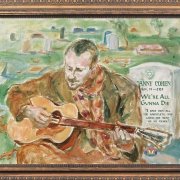 |
We're All Gunna Die (2005, 57.54) ***½/½ |
|
| As I Looked Down Among the Cows Pamela Rodgers Caffeine and Sunlight Film Noir Tongue Tied in Quicksand Magritte Cousin Guy |
Funeral in New Orleans Ghost Country Safari World of Holograms Serene Tanna Leaf Orgies (of the Living Dead) Coffee is Evil Mystery Man We're All Gunna Die |
|
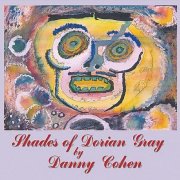 |
Shades of Dorian Gray (2007, 61.39) ***/T½ |
|
| Prayer in the Black and White Avian Blues For George Bailey, LaPado and Bottom Vertigo Drawing in the Dark Devil Brat Cold Snap Conundrum Palm of My Hand |
The Prophecy Noah Blaine Confection of Bullshit The Fall Sunday in Richmond Death Waltz Rigormortis (on the Ridge) Beneath the Shroud |
|
Current availability:
Mellotrons used:
Danny Cohen, brother of Tom Waits' bassist Greg, is all too often described as an 'outsider' artist, i.e. a loony, which is both insulting and inaccurate. OK, he's a tad eccentric, but when was that ever a problem? Actually, Waits is not only a reference point, but he and his wife, Kathleen Brennan, are mentioned on Dannyland's thanks list as 'Tom and Kathleen'; one online enthusiast reckons Cohen's early, self-produced cassette releases probably influenced Waits, rather than vice versa. Who knows? Cohen's 'career' apparently kicked off as early as 1961 (!), but, aside from an alleged handful of other artists' albums around the turn of the '70s, he did little publicly until he began releasing his own material in the late '90s.
1998's Self-Indulgent Music collects three outsider artists together (Cohen, Mike Boner and The Horse Cock Kids), Cohen getting the album's first five tracks. Having heard his later material before this EP's-worth, it's easy, with hindsight, to see the direction in which his career was heading; five fragile, haunted songs, only a hair's-breadth away from Daniel Johnston's impenetrable world, although Cohen seems slightly more rooted in what most of us laughably call 'reality'. Best track? Possibly the quietly terrifying Retirement Community, although all of his contributions are worth hearing for fans. As far as the other two artists involved are concerned, Boner (his real name, surely?) seems genuinely (mildly) deranged, if no Wild Man Fischer, but The Horse Cock Kids are as puerile as their name suggests and not so much 'outsider' as agents provocateur. Cohen plays Mellotron on three of his contributions, with flutes on opener Seattle and strings on Concrete & Urine and Retirement Community, all sounding reasonably real, for what it's worth.
His first solo album 'proper', 1999's Museum of Dannys, is an archival release, although I don't know over what period the tracks were recorded; there's certainly some variation in recording quality across the album's length and different supporting musicians are used. It's actually quite difficult to pigeonhole his material, which has to be a good thing. Low-fi? Weird folk? Acoustic Skip Spence-style psych? Hard to say. On the instrumental front, Cohen adds Mellotron flutes to Quiet Man and strings to Eternal Night, with more uncredited strings on closer Judgement Day, all sounding as real as you'd expect from such an artist. It took Cohen another five years to release anything else, 2004's Dannyland being his first album of new material. It's almost as odd as its predecessor, to be honest; think: a cross between Waits and Daniel Johnston and you won't be a million miles off. Mellotron on two tracks, with a wonky string part on opener The Devil And Danny Cohen from Cohen himself and flutes from Dave Hurst on Still Alive, with its musical Beatles references. I don't think the uncredited cello on closer Eye Of The Beholder is Mellotron, but nothing that could produce that sound is actually credited at all. So; odd, but not unpleasant.
2005's We're All Gunna Die is, just maybe, slightly more 'normal', whatever you take that to mean. The arrangements are less eccentric and the material's actually better, which means either a) Cohen's work is moving infinitesimally nearer the mainstream, or b) I'm getting more used to it. Magritte is actually pretty good, in a low-fi, slightly bleak kind of way and, while it's all endearingly bonkers, it's in a good kind of way. Just one Mellotron track, with Dave Hurst adding faint strings to Magritte, almost to the point where I'm not sure why they bothered. Given that these albums are all pretty lengthy, I wonder if Cohen's still dipping into a decades-long reservoir of material? Anyway, 2007's Shades of Dorian Gray isn't dissimilar to its predecessor, veering between gloomy but relatively normal material and complete nutsville, albeit quietly. Hurst on Mellotron again, with slightly atonal strings on Noah Blaine and a more upfront (and 'trad') part on closer Beneath The Shroud.
See: Tom Waits
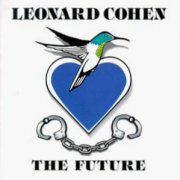 |
The Future (1992, 59.41) ***½/½The FutureWaiting for the Miracle Be for Real Closing Time Anthem Democracy Light as the Breeze Always Has Always Will Tacoma Trailer |
Current availability:
Mellotron used:
The Future was Leonard Cohen's only new album of the '90s, regarded by many as being over-produced, although the sheer quality of his writing shines through the excess instrumentation. Those of you who've only heard his early material will probably be shocked, but it's far less offensive than the concurrent work of many of his contemporaries, while the production should only really intrude for the most die-hard old-school Cohen watcher. His voice is even croakier than the last time you heard it; I mean, the man barely sings, more... intones. His lyrics are as devastatingly spot-on as ever, though; give me this over Dylan any day.
Credited but almost inaudible Mellotron strings from Steve Lindsey on Be For Real, barely making for half a 'T', to be honest. Unless you absolutely insist on nowt but acoustic guitar and voice, I can recommend this to the more open-minded of you, although it does slightly outstay its welcome.
See: Samples etc.
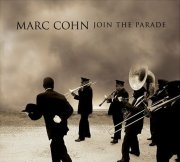 |
Join the Parade (2007, 47.04) ***½/TT½ |
|
| Listening to Levon The Calling (Ghost of Charlie Christian) Dance Back From the Grave If I Were an Angel Let Me Be Your Witness Live Out the String Giving Up the Ghost |
Join the Parade My Sanctuary Life Goes on |
|
Current availability:
Mellotron/Chamberlin used:
Imagine if Tom Waits sang 'normally', wasn't quite so obsessed with sounding like a 1920s steam band and resided slightly nearer the mainstream and you might be getting somewhere vaguely close to Marc Cohn. He's been around for a while, making his first album in his early thirties and his fourth, 2007's Join the Parade, some sixteen years later. It's a pretty downbeat kind of album, but in a good way, channelling that Waits vibe through music that doesn't require the listener to be in an advanced state of inebriation/illness/death, which should (theoretically) make him more popular, although I don't think it has.
Mellotron from David Barrett and Chamberlin from Patrick Warren, with what sounds like Mellotron cellos on If I Were An Angel, cellos and Chamby strings on The Calling (Ghost Of Charlie Christian) and Giving Up The Ghost, Mellotron flutes and Chamby strings on closer Life Goes On and more strings on My Sanctuary. I may've missed something, but it's fairly hard to tell... Overall, then, one for Waits fans looking for a bit of normality, or tape-replay obsessives looking for a late-nite drinking den fix.
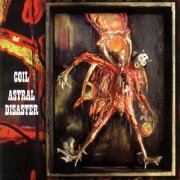 |
Astral Disaster (1999, 72.19) ***/TThe AvatarsThe Mothership & the Fatherland 2nd Sun Syndrome The Sea Priestess I Don't Want to Be the One MU-UR |
Current availability:
Mellotron used:
Coil began as a Psychic TV offshoot in the early '80s, going on to influence various 'industrial' groups (most of whom weren't actually especially industrial) and becoming acid house innovators before shifting into a kind of neo-folk/drone crossover area. Astral Disaster was their seventh album, originally released as a limited-edition LP, later remixed and expanded into the CD version reviewed here. The album splits neatly into a three short/three long format, with both The Mothership & the Fatherland and MU-UR topping twenty minutes, the latter being the record's major drone-fest and probably one of its more listenable tracks for the uninitiated.
Spiritualized member and sometime Julian Cope collaborator Thighpaulsandra plays Hammond, Mellotron and synths on the album, with some particularly nice organ work in places. Two presumed Mellotron tracks, with some string notes on The Sea Priestess, although the choirs throughout the piece are either real or sampled, while the cellos on I Don't Want To Be The One are more likely to be Mellotron than real. Tragically, co-founder John Balance died in 2004, effectively ending the band, the other founding member, 'Sleazy' Peter Christopherson (ex-album art legends Hipgnosis), following suit in 2010.
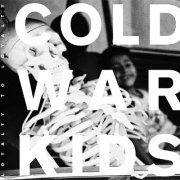 |
Loyalty to Loyalty (2008, 45.30) **½/½ |
|
| Against Privacy Mexican Dogs Every Valley is Not a Lake Something is Not Right With Me Welcome to the Occupation Golden Gate Jumpers Avalanche in B I've Seen Enough |
Every Man I Fall for Dreams Old Men Dream On the Night My Love Broke Through Relief Cryptomnesia |
|
Current availability:
Chamberlin used:
The Cold War Kids' rise to (relative) fame is very much a story of the modern world; they apparently caught the attention of the blogging community, picking up a worldwide audience via the 'Net, although how that translates into actual record sales is unknown. Their second album, 2008's Loyalty to Loyalty, is titled after an anti-Nietzschean concept, which is a) admirable and b) probably far too brainy for many of their fans. It's difficult to know how to describe its contents: late-nite indie? Sparse jazz? Mostly, it consists of piano-driven dirges and erratic percussion overlaid with Nathan Willett's mournful wailing; Willett badly wants to be Television's Tom Verlaine, which is only acceptable if you actually are Tom Verlaine. Sorry, pal.
Zac Rae plays Chamberlin, with background strings on I've Seen Enough, in a 'why did they bother?' kind of way. Fans of downbeat indie may go for this, but I can't imagine anyone else holding its overwroughtness to their collective hearts. Good at what it does (he said, grudgingly), but next to no Chamberlin, so, y'know, don't bother.
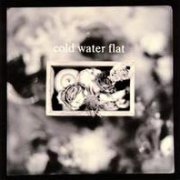 |
Cold Water Flat (1995, 42.12) **/½ |
|
| Virus Road King of the Underground Numb Magnetic North Pole Mistaken Beautiful Rescue Lights It's Over |
All I Had She is Hold My Head |
|
Current availability:
Mellotron used:
Cold Water Flat, fronted by the better-known Buffalo Tom's Bill Janovitz' brother Paul (got that?), were a typical East Coast 'alternative' band of the early '90s, who were picked up (as they say) by MCA for their 1995 eponymous second (and last) album. It's... an entirely average 'alt.' record, 'featuring' lots of quiet/loud, sounding like it could only aspire to be the runt of the grunge litter; sorry if that sounds harsh, but I generally say it as I see it and I see it like that. Best track? Well, closer Hold My Head, despite its excess length, is possibly the least bad, but that's about the best I can do.
Someone calling himself Rabbi Suede, most likely producer Sean Slade (Dinosaur Jr, Sebadoh) plays Mellotron, with distant strings on the first two tracks, Virus Road and King Of The Underground, giving the (almost certainly false) impression that the band tired of it quickly, unless they recorded the album in its running order. Unlikely. I'm afraid to say that, to the non-fan, Cold Water Flat is the dullest of dull genre albums, entirely indistinguishable from a thousand similar, or so it feels, so with so little Mellotronic involvement, this has to be a big, fat 'no'.
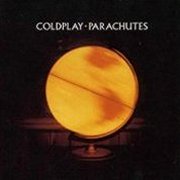 |
Parachutes (2000, 41.50) **½/½ |
|
| Don't Panic Shiver Spies Sparks Yellow Trouble Parachutes High Speed |
We Never Change Everything's Not Lost |
|
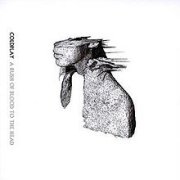 |
A Rush of Blood to the Head (2002, 54.12) **½/T |
|
| Politik In My Place God Put a Smile Upon Your Face The Scientist Clocks Daylight Green Eyes Warning Sign |
A Whisper A Rush of Blood to the Head Amsterdam |
|
Current availability:
Mellotrons used:
I've seen Coldplay described as 'Radiohead-lite', although the comparison could be seen as insulting; it's not that Coldplay are actively offensive, just terribly, terribly bland, a criticism I hope you'd have trouble levelling at Radiohead. Parachutes rarely picks up speed at all, being mainly a collection of dull, mid-paced ballads with a faint 'indie' feel about them, dragged down further by Chris Martin's soporific, borderline-tuneless voice. There's nothing wrong with slow material - Low are marvellous, for example, but to my ears this album all sounds much of a muchness. There's Mellotron on one track, although I've no idea who plays it (Martin?); Yellow has cellos, flutes and strings dotted about, though more as background colouring than anything else. Definitely not worth it on those grounds.
2002's A Rush of Blood to the Head manages to up the BPM rate a little, material like God Put A Smile Upon Your Face and irritating hit Clocks (you'll know it when you hear it - I did) being a step or two up from 'slothful', while A Whisper is positively lively. Best track? I still retain a vestigial fondness for major hit In My Place; I kept hearing it on the radio that year and it was the first mainstream pop I'd heard in a long time that actually grabbed my attention, even if it is a bit wet. Funnily enough, it's also the album's 'chief' Mellotron track, such as it is, with background cellos on the verses, although if you didn't know, you wouldn't, er, know. I'll stick my neck out and say that's cellos we're hearing on Warning Sign, too. Proof? An ancient Angelfire website quotes drummer Will Champion as saying, "...and 'In My Place' is based around a mellotron, the instrument used on 'Strawberry Fields Forever.' But instead of the flute setting, we use the cello setting." So there you go. In those days before hardware Mellotron emulators, chances are that a band saying 'we used a Mellotron' actually meant 'we used a Mellotron'. I wouldn't take that as any kind of recommendation for the album as a whole, however.
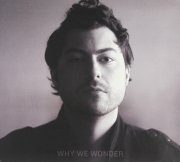 |
Why We Wonder (2010, 37.32) **½/T |
|
| Out of Time Dead Roses Little Beautiful Thing My Lovely Up to You All You Need Just You Care |
This Lullaby Birds of a Feather Out of My Head |
|
Current availability:
Mellotron used:
Canadian Brit (or British Canuck?) Andrew Cole's debut, Why We Wonder, is one of those singer-songwriter albums that occasionally pull the artist's influences together in a meaningful way, in this case, on Up To You and the string-driven This Lullaby. Sadly, its other eight tracks see Cole aping that (still?) currently-popular falsetto thing that people seem to like (why?), or simply being rather bland, at its worst on closer Out Of My Head.
Chris Dale (hi, Chris) plays his own M400, with nice little flute parts on Little Beautiful Thing and Up To You, but nowhere near enough to rescue this dreary excuse for a record.
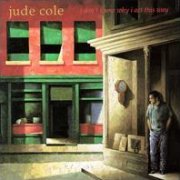 |
I Don't Know Why I Act This Way (1995, 41.37) **½/TT |
|
| Speed of Life Believe in You Move if You're Goin' Lowlife Joe Sheila Don't Remember Take the Reins Madison |
Hole at the Top of the World Heaven's Last Attempt |
|
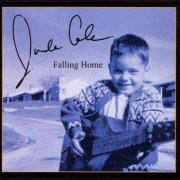 |
Falling Home (2000, 46.32) **½/T |
|
| My Friend Stan (Intro) I Won't Bleed Braking Wheels Leave Me Alone Falling Home Any Dark Day More Than a Breakup Song Somewhere |
Raining on the Moon You Make it Easy Inhale Peaceful in Mine |
|
Current availability:
Chamberlins used:
Although his first band were Brits The Records (one eponymous album, 1980), it seems Jude Cole's American, moving back to his homeland in the '80s, beginning his sporadic solo career with 1987's Jude Cole. 1995's I Don't Know Why I Act This Way is his fourth such, consisting of singer-songwriterly material, unfortunately tainted with a mainstream '90s production (infinitely preferable to a mainstream '80s one, mind), better tracks including Lowlife and Joe. Jon Brion plays Chamberlin (well, it makes a change from Patrick Warren), with flutes on opener Speed Of Life, unidentified woodwind on Move If You're Goin', flutes and cello (despite a real one being used elsewhere) on Lowlife and what sounds like brass mixed in with other instruments on Madison.
Cole's follow-up (and last album to date), 2000's Falling Home, was released independently, a not dissimilar record to its predecessor, its best track probably being the energetic Inhale. Aaron Embry is credited with 'Chamberlin orchestra', a multi-overdubbed concoction of pre-war woodwinds on swing era-style ballad You Make It Easy, sounding real enough to fool the ear. Overall, then, really not that interesting, although some of Cole's lyrics bear repetition. Decent levels of tape-replay use on I Don't Know Why..., though less so on Falling Home, which is nice, but really not enough to make these worth a purchase, I fear.
 |
Networking in Purgatory (2014, 40.10) **½/T |
|
| At the Piano Networking in Purgatory Bird Falls Vanitas Quack Opiate Eyes Across the Frozen Bridge Echoes Toes |
Helios A Lawyer or a Gimmick Meltemi |
|
Current availability:
Mellotron used:
2014's Networking in Purgatory is Ned Collette's fifth album, the third under the Wirewalker banner, possibly best described as a kind of indie folk-rock, I suppose. Is it at all interesting? Not really, no; its mix of bland vocal melodies, insipid rhythms and electronica-lite instrumentation, combined with a lack of memorable material, scupper its chances of being something I'll ever play again. Not, I'd imagine, that Collette's that bothered one way or the other.
Collette plays a slightly sharp, quite real-sounding Mellotron flute line on Across The Frozen Bridge, its tuning issues during the two-note intervals section, underlain with background strings, helping its case no end. Shame it's found on such a dull record, really.
See: City City City
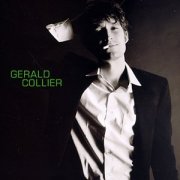 |
Gerald Collier (1997, 42.44) ***/T |
|
| Dark Days Whored Out Again Forgiveness From Revenge/God Never Lived in My Neighborhood Don't Discard Me Hittin' the Wall Truth or Dare Fearless To Break the Ice |
Hell Has Frozen Over (on Who I Used to Be) Rumpled Up Wings You Can Rely on |
|
Current availability:
Mellotron used:
Gerald Collier went solo after Best Kissers in the World split, his eponymous 1997 release being, I believe, his second album. It would be easy to point the Neil Young finger at him, but there's more to this album than merely walking in someone else's footsteps, as proven by its better tracks, not least his version of Pink Floyd's Fearless, Rumpled Up and closer Wings You Can Rely On.
Co-producer Sean Slade adds (his own?) Mellotron to a couple of tracks, with background flutes on Fearless and warbly, heavily effected strings on Wings You Can Rely On. Perfectly good, yet not outstanding music (and other art forms) is the hardest to write about; Gerald Collier is a decent record with a little tape-replay work, but it's unlikely to become anyone's favourite album.
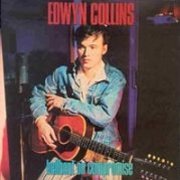 |
Hellbent on Compromise (1990, 51.06) ***/½ |
|
| Means to an End You Poor Deluded Fool It Might as Well Be You Take Care of Yourself Graciously Someone Else Besides My Girl Has Gone Now That it's Love |
Everything and More What's the Big Idea Time of the Preacher/Long Time Gone |
|
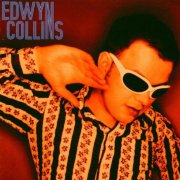 |
I'm Not Following You (1997, 55.10) ***/½ |
|
| It's a Steal The Magic Piper Seventies Night No One Waved Goodbye Downer Who is it? Running Away With Myself Country Rock |
For the Rest of My Life Superficial Cat Adidas World I'm Not Following You |
|
Current availability:
Mellotrons used:
Ex-leader of Orange Juice, Edwyn Collins' second solo album, 1990's Hellbent on Compromise, is apparently viewed as a poor relation in comparison to its rated predecessor, the previous year's Hope and Despair and its successor, '94's Gorgeous George, home to major hit A Girl Like You. In truth, the album's not bad, but the songwriting isn't outstanding and the arrangements seem a bit studio-heavy. Best track? For some reason, Someone Else Besides strikes a chord with me, as it's barely distinguishable from the rest of the album, although nothing here actually offends. Collins plays Mellotron himself, in an unusually early 'second wind' setting, after its '80s pariah status, with faint strings on Take Care Of Yourself.
'97's I'm Not Following You is another album for Edwyn's fans and why not? The material skips between styles with his usual aplomb, making him as difficult to categorise as ever, better tracks including Seventies Night and the driving Adidas World, replete with ripping monosynth part. Collins plays Mellotron again, with a brief 'noodly' horn part (credited as such) on No One Waved Goodbye, which, to be honest, would've passed me by had I not known. Incidentally, best wishes to Collins on his long-term stroke recovery.